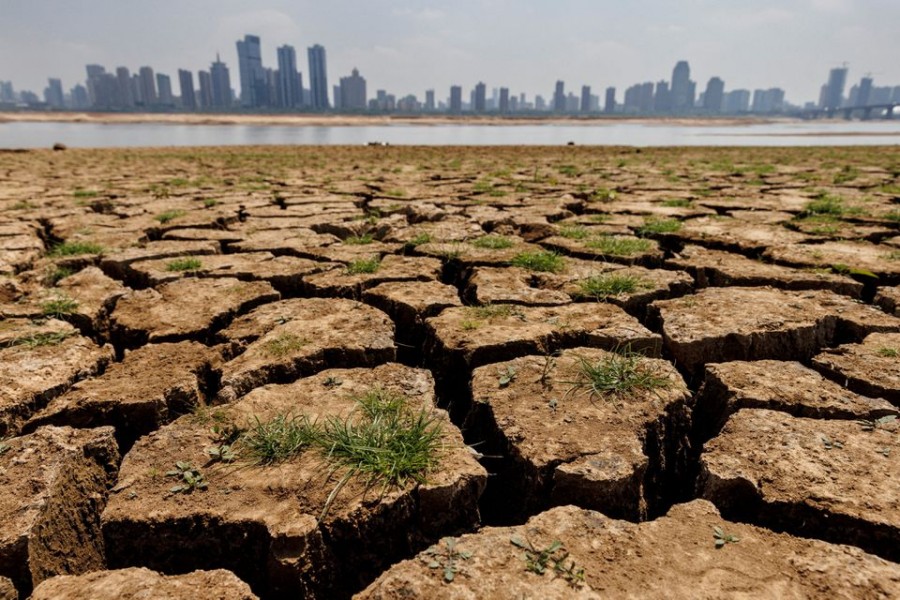Wealthy countries - like poorer ones - stand to reap huge economic, social and environmental gains by swiftly ramping up renewable energy and other climate action, the new UN climate chief said at the COP27 climate talks in Egypt on Wednesday, reports Reuters.
"It's good business for them to embrace the transition," which offers everything from cheaper power to less pollution, Simon Stiell said in an interview. "It's a healthier, wealthier future."
The problem in making that change is "there's so much vested interest in where we are. That's the challenge."
Stiell, who grew up in the Caribbean island nation of Grenada, says his job is to become the world's "accountability chief" - in charge of ensuring global plans and pledges to deal with climate change are carried out by governments, companies and others.
It is an enormous job, particularly as a 2030 deadline looms to cut global emissions by nearly half, or face soaring warming-linked losses, even as fossil fuel emissions keep rising.
"Today a new era begins. We begin to do things differently," he said as the UN climate talks launched in the Egyptian Red Sea resort of Sharm el-Sheikh this week.
On the formal - or in some cases informal - agendas in Egypt are efforts to drive forward a host of fundamental changes needed to address climate change, including a rethink of global financial systems to channel money where it is most needed.
Barbados Prime Minister Mia Mottley has proposed a revamp of post-World War II international financial systems, dubbed the 'Bridgetown Agenda', designed to make funding easier to access for countries to develop cleanly and battle climate threats.
The proposal has won some early key backing, including from France's President Emmanuel Macron.
"We need all our institutions fit for purpose," Stiell noted, although he said "we have a long way to go" to achieving that.
Despite resistance by some wealthy nations, a push to create a new "loss and damage" funding facility to help poorer countries who have done little to cause climate change deal with its impacts also is on the COP27 agenda.
UN officials, activists and some national leaders have said that a deal is crucial to the summit's success.
BREAK IT DOWN
Stiell said his plan to get governments to nearly halve emissions by 2030 and find vast amounts of new finance for clean energy and adaptation to climate threats is to break the job down into what needs to be done in each of the eight years left.
"You can get lost in the weeds - and the weeds don't provide the clarity and the direction that is needed," he said.
At decades of COP meetings "the process up to now has been highly incremental," Stiell noted. "This COP signals a shift in direction," with businesses and countries failing to implement their pledges increasingly likely to be called out.
Since it began on Sunday, the summit in Egypt has seen a few promising signs - from securing a spot for loss and damage finance on the agenda, to more than 100 country leaders - almost without exception - calling for swifter climate action.
Plans to tighten rules around net-zero emissions pledges by businesses - to ensure companies actually cut their own emissions substantially first rather than relying heavily on carbon offsets elsewhere - also have received plaudits.
Stiell said making real progress toward climate goals will require ramping up what is already working, finding ways to pull along laggards, providing a "massive" boost in climate finance and increasing political will to make climate action a priority, despite other nagging crises.
"I'm a technocrat as well as a politician," he said. "And one thing being a technocrat has taught me is there are solutions to everything if there is political will."
The problem is that doing the hard work of making new policy and shifting money "is going to be painful", Stiell said.
"We are comfortable, too comfortable, in an uncomfortable environment," he added.
TAXING FOSSIL FUELS
One clear option to find more cash for climate action, many activists and some leaders at COP27 agree, is a windfall tax on fossil fuel firms, now bringing in eye-watering profits, partly due to rising oil and gas prices driven by the war in Ukraine.
Barbados' Mottley called for a 10% tax on fossil fuel companies to help fund rising "loss and damage" from climate change.
Richer nations may also need to widen taxes on wealthy corporations and individuals to raise the money to address climate change, at home and abroad, activists said.
"National tax systems will be the key to unlocking real action to address climate change," said Teresa Anderson, global climate justice lead for charity ActionAid International.
Selwin Hart, a special adviser on climate change to the UN Secretary-General, said finding finance to help people on the frontlines of climate change deal with impacts they did not cause is "a moral obligation, a moral imperative for all of us".
But Mottley and others have emphasised it is also a matter of self interest for rich nations, which will also face impacts - from trade disruption to bigger migration flows - if climate stresses forced people in poorer countries from their homes and livelihoods.
Stiell said many rich countries recognised the growing risks "academically" - but that urgency was lacking unlike when nations mobilised trillions of dollars to deal with the COVID-19 pandemic.
On climate change, which is harder to see and prioritise, "I think the urgency is going to be there. (But) when we all see it as urgent as the pandemic, it's going to be too late," he said.


